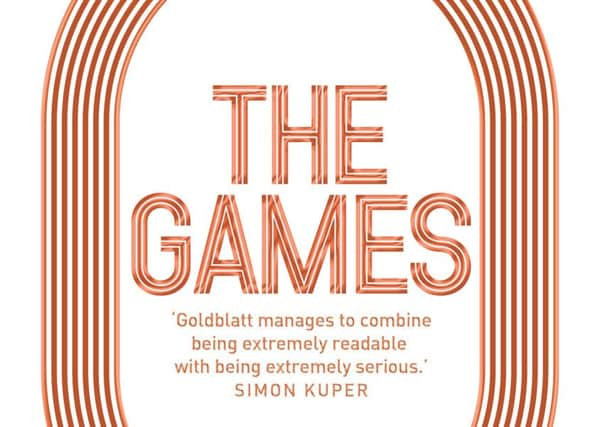Drugs use at the Olympics goes back further than you think


Such is the grand scale of this project it would come as no surprise to learn he decided to “dip into the medicine chest”, as he puts it in this podium-worthy study.
Amusingly, Goldblatt recounts the tale of Mongolian judoka Bakaava Buidaa, who in 1972 exceeded “the permissible caffeine level”. The International Olympics Committee was at the time struggling to get to grips with the issue of stimulants following the death of a Danish cyclist at the 1960 Rome games because of suspected amphetamine use.
Advertisement
Hide AdAdvertisement
Hide AdThere have been enough stories from Rio to fill acres of newsprint so imagine seeking to chronicle each and every Olympics ever held, stretching back to the first official modern staging in 1896, and even beyond, to ancient Greece.
With so much source material at his fingertips, Goldblatt does his best to prevent information overload. There are so many long-lost stories that even when a dense passage threatens to overwhelm the reader it is never long before they’re rewarded with another rich anecdote, such as Buster Crabbe’s graduation from 400 metre freestyle champion to playing the role of Tarzan after being spotted at the 1932 Olympics, in Los Angeles.
It’s a shame that Goldblatt cannot be more uplifting in his conclusion, where he depicts an Olympics movement tangled with bureaucracy and weighed down by corruption. But as sportswriter Simon Barnes once wrote, the reason the Olympics remains such an inspirational event to cover is that wherever you look, it is the most important day of someone’s entire life. This is in spite of the doping rows, unscrupulous officials and often questionable legacy for host nations.